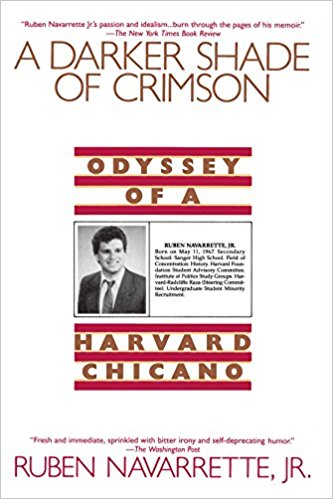There’s a word that I don’t like to use. And I say this, even though, in writing about the immigration debate for the last 30 years, I’ve had plenty of opportunities.
In fact, sometimes I pretend that I have — in this lifetime — a limited supply of this particular word. And so I use it sparingly. To do otherwise would cheapen its meaning.
But today, reluctantly, I have to dip into the reserve and talk about that word. I speak of the dreaded “r-word”: racist.
Many immigration restrictionists are obsessed with the fact that more and more communities in the United States are becoming Latinized. One assumes that anyone who has this particular worry must consider Latinos — their language, culture, customs, etc. — inferior to the mainstream. Otherwise, why worry?
Notice I didn’t put food on that list, Mexican food in particular. Even those who don’t like Mexicans simply adore Mexican food. Apparently, nativism comes with a taco exemption.
The fact that many Americans consider Mexicans inferior to themselves is a telltale sign of racism.
Look, I get it. This is a free country, and you don’t have to like anyone you don’t want to like. But if you fear, hate, or look down upon a group of people — just because of their race or ethnicity — well, you might be a racist.
What’s worse, you might not even know it. Maybe that poison somehow found its way into your bloodstream because of the kind of media you take in.
For instance, if you’re fired up over immigration, talk radio will likely make you angrier. But it won’t make you smarter. Most radio hosts are experts: “The Immigration Debate for Dummies.”
In San Diego, a conservative radio host recently complained that all it takes for someone to get labeled “racist” these days is supporting border security or thinking that the undocumented ought to be deported. Simple as that.
Not long ago, after I wrote a column blasting the California Republican Party for “succumbing to racism when railing against immigration,” an irate reader strongly objected. “Show one example!!!,” he wrote. “Republicans are against ILLEGAL immigration and that is not racism.”
Another reader wrote an angry response to a column I wrote on immigration. “Don’t even bother to respond, if you’re going to call me a racist,” he said.
Again, it’s not like I use that word lightly. Calling someone a racist is serious business. The word is as ugly as it gets, and it has a knack for stopping a conversation cold.
In an ideal world, it should be difficult to get hit with that accusation. And you shouldn’t be able to get there simply by supporting border security or being against illegal immigration. Those are perfectly reasonable positions, and the fact that you have them is also perfectly reasonable.
Unfortunately, there are plenty of people in the immigration debate who still manage — through word and deed — to earn the label and wind up being called “racist.”
Here’s one good way to wind up wearing the label: If you feel compelled to describe immigrants by using one or more of the “d-words” (dangerous, defective, diseased, damaged or detrimental to society), then you’re well on your way.
Some of the folks who behave so reprehensibly are Democrats; in fact, many of those who voted for President Trump in the Rust Belt states came from the party of Franklin Delano Roosevelt. But the truth is, these days, most of the bad behavior comes from Republicans. That’s probably because GOP lawmakers and officials think that is what conservative voters want to hear. I think they’re wrong about that, by the way.
Republicans are always lecturing the rest of us about how we shouldn’t play the victim and how we need to take responsibility for our actions. So now it’s only fair that they step up and lay claim to the awful things that they’ve said and done when it comes to immigrants.
Let’s not be afraid to call this plague by its proper name, and explain in the simplest possible language what is really going on in our society. We don’t need to sugarcoat it to spare anyone’s feelings, least of all the wrongdoers.
Once more, there is nothing wrong with believing that the United States should secure the border, or preserve law and order, or send home the undocumented. Every country has the right to do those things, and the United States is no different. And so believing all that doesn’t make you a bad person.
But if you happen to fear, hate, or look down upon recent immigrants as inferior to the rest of us — and you feel this way solely because of the race, ethnicity, or skin color of the immigrants in question — well, have I got a word for you.
Ruben Navarrette, a contributing editor to Angelus News, is a syndicated columnist with The Washington Post Writers Group, a contributor to USA Today and the Daily Beast, author of “A Darker Shade of Crimson: Odyssey of a Harvard Chicano,” and the host of the podcast “Navarrette Nation.”





